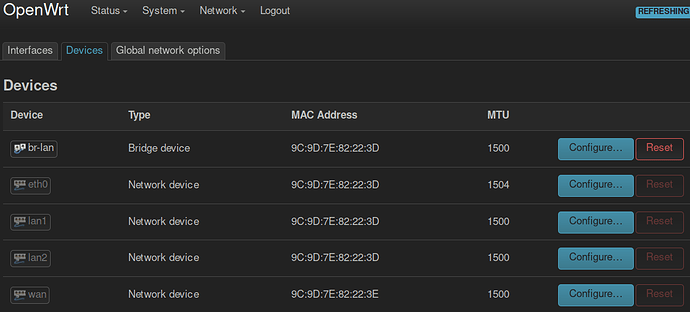Top edit: I'm not configuring any VPN interface on the Router. It's gonna be a regular PPPOE router without VPN. I will be using the VPN client on the PC where I will set MTU to 1376 and tweak the router accordingly.
Shall one set their router's MTU manually to reflect LAN devices (using wireguard) MTU if one is not using fancy ICMP shenanigans for autoconfiguration?
1- If I want to set the MTU for router, which devices should be set?
-eth0
-wan0
-brlan0
-lan1
-lan2
2- Should you set them to the same value as LAN device (1376 in my case) or increase it by accounting +8 for PPPOE or anything else?
(Both devices are ipv4 only but I'm not trying to maximize the value as I have better latency when it's set to = 1376)
3- Is having "MSS Clamping" enabled on WAN interface beneficial in this case?(No ICMP messages between devices or between router and WG server)
4- (not relevant to openWRT but more of a general networking question) Is it any good to set both the "ethernet" and "wireguard" adapters on Windows PC to the same value or leave ethernet adapter with its default 1500?
Edit: Even though a user has felt that he has given me the answers I was looking for, that's not how I see it. So I'm still looking for input from fellow forum members.
